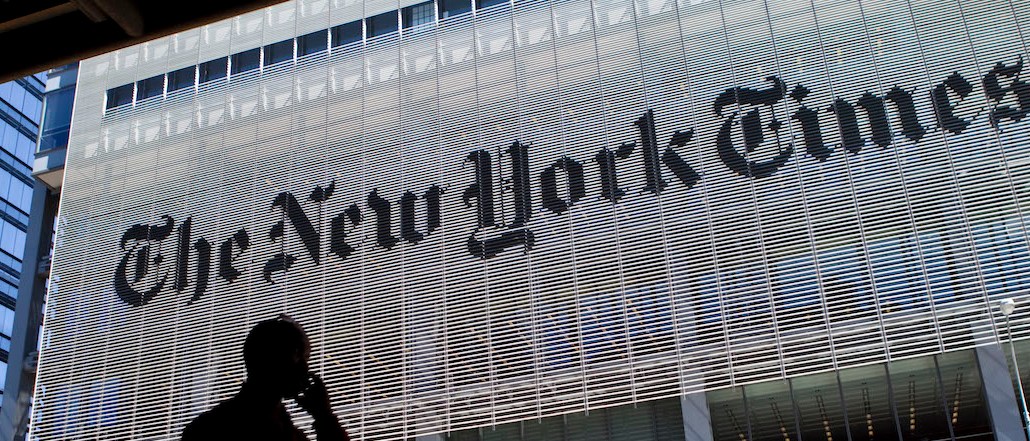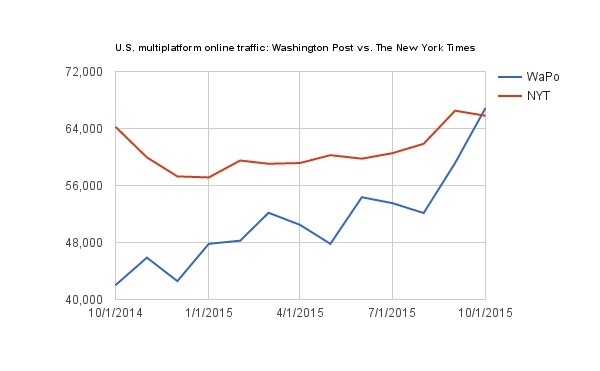Secure your place at the Digiday Media Buying Summit in Nashville, March 2-4

More people visited the Washington Post’s website than The New York Times’ in October, marking a significant milestone in the battle for old guard supremacy in online media.
Last month, the Washington Post raked in 66.9 million multi-platform unique visitors narrowly edging out the New York Times, which recorded 65.8 million uniques, according to comScore. It’s the Post’s highest trafficked month since at least Oct. 2014, representing a 59 percent increase in less than a year.

For the Times, traffic dipped slightly from September (66.5 million) with traffic largely stagnating over the past two years. Still, it was the Times’ second-highest month buoyed by viral pieces Miranda July’s interview with Rihanna and the lengthy, moving feature “The Lonely Death of George Bell.”
The New York Times, according to a Politico New York piece from August, has been worried about the Post’s growing digital dominance, propelled by its ever growing selection of viral-focused blogs and a faster loading website. In response, the Times is building out its own “digital rewrite team” called the Express in an effort to capture some viral traffic.
Just two months ago, Politico asked “could the Post top the Times in unique visitors by this time next year?” The answer is yes (and much sooner!), but now the question is, will it last?
More in Media

Digiday+ Research: Dow Jones, Business Insider and other publishers on AI-driven search
This report explores how publishers are navigating search as AI reshapes how people access information and how publishers monetize content.

In Graphic Detail: AI licensing deals, protection measures aren’t slowing web scraping
AI bots are increasingly mining publisher content, with new data showing publishers are losing the traffic battle even as demand grows.

In Graphic Detail: The scale of the challenge facing publishers, politicians eager to damage Google’s adland dominance
Last year was a blowout ad revenue year for Google, despite challenges from several quarters.





